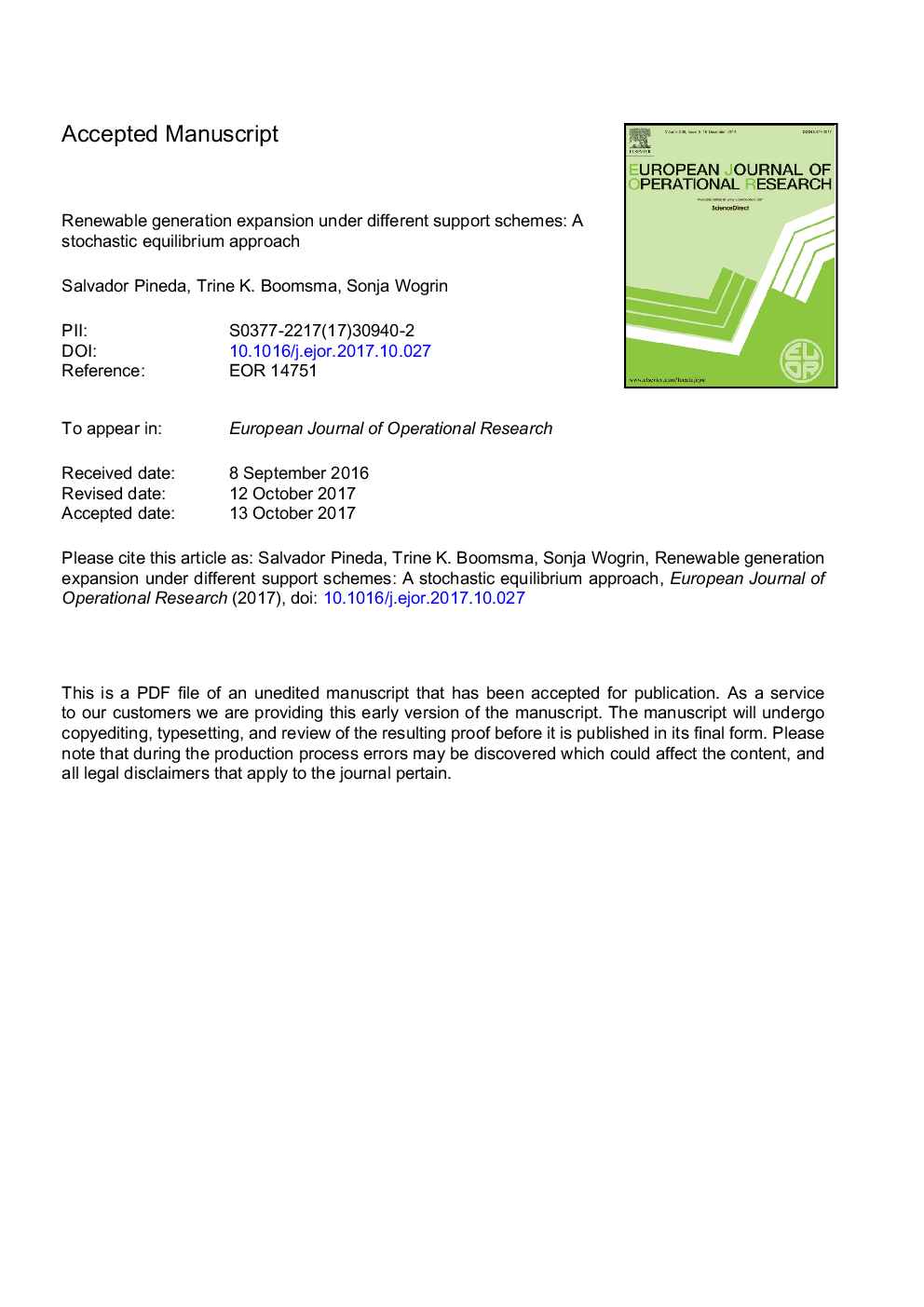| Article ID | Journal | Published Year | Pages | File Type |
|---|---|---|---|---|
| 6895129 | European Journal of Operational Research | 2018 | 32 Pages |
Abstract
Following the deregulation of electricity markets, a current challenge of policy makers is to facilitate the transition to a sustainable power system at the highest welfare for society. In this paper we investigate the efficiency of different support schemes, such as a feed-in tariff, a feed-in premium and tradable green certificates, with respect to incentivizing the required investments in renewable generation. We consider a number of generation expansion problems, and formulate stochastic equilibrium models that account for uncertainty in demand and renewable supply, the risk-aversion of investors and the competitiveness of the market. The problem of the policy maker is formulated as a mathematical program with equilibrium constraints (MPEC) and as a non-linear complementarity problem (NCP) for the feed-in schemes and the certificate market, respectively. Our models are solved for a small illustrative example and a larger case study based on the Danish power system. The results confirm that the main driver for the optimal choice of renewable support scheme is the aversion of power producers towards price and volume risk, while the competitiveness of the market rarely affects such choice.
Related Topics
Physical Sciences and Engineering
Computer Science
Computer Science (General)
Authors
Salvador Pineda, Trine K. Boomsma, Sonja Wogrin,
